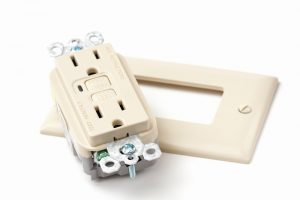 Your household’s electrical grid is easily one of the most important components in the living space. Each of your appliances requires this system to work—even gas-powered heaters use an electric starter. If your electrical system is malfunctioning, you can experience all kinds of problems.
Your household’s electrical grid is easily one of the most important components in the living space. Each of your appliances requires this system to work—even gas-powered heaters use an electric starter. If your electrical system is malfunctioning, you can experience all kinds of problems.
Safety is a concern, too, when your electrical system is malfunctioning. Electrical problems of any type can pose a serious threat to your living space, and to your family. Electrocution is a real threat, which brings us to our topic for this post—making sure you have the right outlets in place to protect your appliances, electrical equipment, and your home’s occupants.

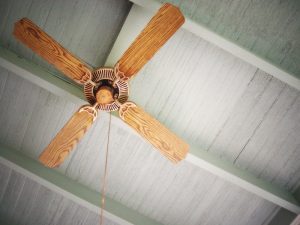 Ceiling fans don’t seem like that complicated of an appliance right? When you want your home to be cool, you turn your ceiling fans on, and that’s that, right?
Ceiling fans don’t seem like that complicated of an appliance right? When you want your home to be cool, you turn your ceiling fans on, and that’s that, right? Electricity is one of those home comforts that is pretty easy for any of us to take for granted nowadays. After all, we’ve had it available to us in our households throughout our entire lives—it’s always there! But… taking things for granted often means we can forget about the dangers involved if we don’t properly care for them. And electricity can certainly pose such a danger.
Electricity is one of those home comforts that is pretty easy for any of us to take for granted nowadays. After all, we’ve had it available to us in our households throughout our entire lives—it’s always there! But… taking things for granted often means we can forget about the dangers involved if we don’t properly care for them. And electricity can certainly pose such a danger.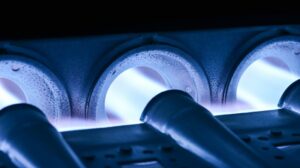 Fall is trekking right along and the official start of winter is less than a month away. Chances are, you’ve begun running your heater on a daily basis already… and more cold weather is on its way. This means if you haven’t done so already, now is the time to check your heating system for any signs of trouble. Problems from last year won’t have gone away this year without professional care—and this can be compounded by lack of use over the months. Running your system on a regular basis when it’s not performing at its best will only end in frustration—and probably a broken down heater.
Fall is trekking right along and the official start of winter is less than a month away. Chances are, you’ve begun running your heater on a daily basis already… and more cold weather is on its way. This means if you haven’t done so already, now is the time to check your heating system for any signs of trouble. Problems from last year won’t have gone away this year without professional care—and this can be compounded by lack of use over the months. Running your system on a regular basis when it’s not performing at its best will only end in frustration—and probably a broken down heater. The holiday season is just about here, and if you’re like many homeowners in our area, you might be decorating your household, inside and out. Many times, this includes putting holiday lights up and around your home.
The holiday season is just about here, and if you’re like many homeowners in our area, you might be decorating your household, inside and out. Many times, this includes putting holiday lights up and around your home.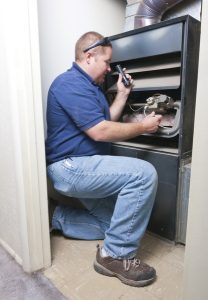 Temperatures are growing warmer, and soon enough it will be the official start of spring. You may still be using your heating system on a regular basis right now, and if so we hope it’s performing as efficiently and effectively as it should. If you had maintenance done this past fall, and took care of any recommended repairs, then you likely have nothing to worry about.
Temperatures are growing warmer, and soon enough it will be the official start of spring. You may still be using your heating system on a regular basis right now, and if so we hope it’s performing as efficiently and effectively as it should. If you had maintenance done this past fall, and took care of any recommended repairs, then you likely have nothing to worry about.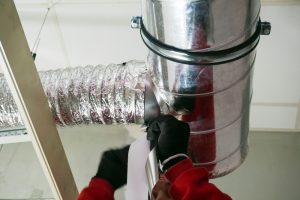 With our temperature lows still plummeting below freezing, there’s no denying that we still have a lot more cold weather ahead. This means that making sure your heating system is functioning as effectively and efficiently as possible is essential to your comfort and your financial efficiency. This is done, first, by ensuring you schedule maintenance each year—we hope you did this before winter began. It’s also about taking care of any repair needs that came up during maintenance.
With our temperature lows still plummeting below freezing, there’s no denying that we still have a lot more cold weather ahead. This means that making sure your heating system is functioning as effectively and efficiently as possible is essential to your comfort and your financial efficiency. This is done, first, by ensuring you schedule maintenance each year—we hope you did this before winter began. It’s also about taking care of any repair needs that came up during maintenance. When you own a home, you typically learn pretty quickly in the first year that there are a number of problems you may deal with. Electrical issues, however, may arguably require the most attention, since they are more than inconvenient—they can be dangerous. Sure, an HVAC problem can leave you uncomfortable for a few hours—but an electrical problem could lead you to loss from a fire.
When you own a home, you typically learn pretty quickly in the first year that there are a number of problems you may deal with. Electrical issues, however, may arguably require the most attention, since they are more than inconvenient—they can be dangerous. Sure, an HVAC problem can leave you uncomfortable for a few hours—but an electrical problem could lead you to loss from a fire.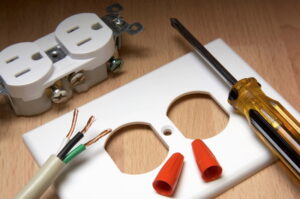 Is it time to upgrade your older electrical panel so your system can handle more demand? Or perhaps you suspect that your home needs rewiring in certain rooms, or throughout the whole house. Whatever your
Is it time to upgrade your older electrical panel so your system can handle more demand? Or perhaps you suspect that your home needs rewiring in certain rooms, or throughout the whole house. Whatever your